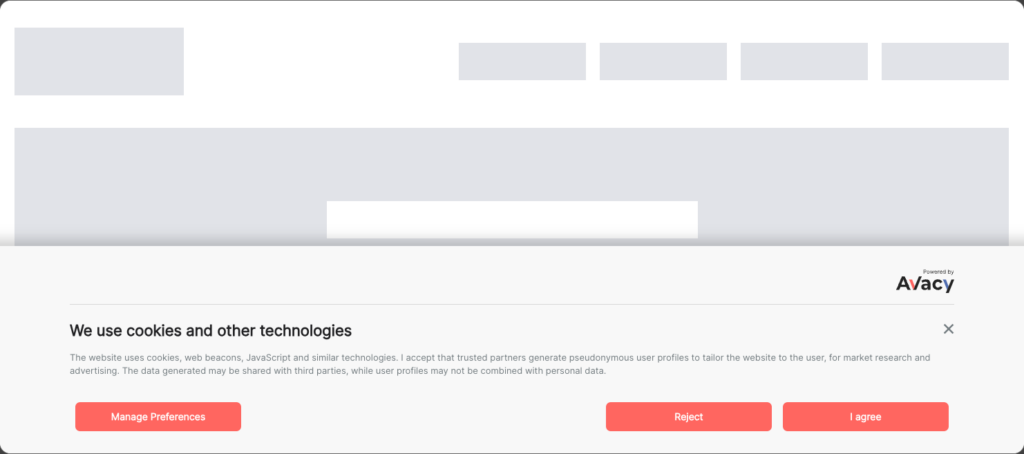In an era of rapid technological advancement, privacy and data security become more crucial than ever before.
Introduced in 2018, The GDPR (General Data Protection Regulation) established new obligations and responsibilities for companies and organisations by requiring significant legal and technological adaptation for data processing. In this article, we will analyse what the GDPR softwarewhat their functionalities are and how they can help companies to manage compliance with the Regulation effectively and securely.
What is GDPR software?
Recently, governments around the world have stepped up their privacy laws, from Europe's GDPR to California's CCPA to Brazil's LGPD, outlining a legislative landscape rapidly changing global environment. A common aspect of these laws is the liability legal processing of personal data, which falls mainly on the website operators.
Consequently, the GDPR software become indispensable tools for these figures. The computer applications of these software are designed to ensure GDPR complianceand include features such as:
- The mapping and analysis of personal data processed by the organisation;
- The creation and updating of the register of processing, disclosures and consents;
- The appointment and training of the Data Protection Officer (DPO);
- The assessment and management of risks and data breaches;
- The handling of requests from data owners (right of access, rectification, cancellation, opposition, portability, restriction);
- The generation of reports and accountability documents.
GDPR cookie consent software
A site in the EU, or one that processes data of EU citizens, must comply with the processing conditions set by theArticle 5 of the GDPR. According to the GDPR, consent is the first condition for processing personal datarequiring the clear and unmistakable permission of users before any collection or processing of their data.
Cookies are commonly used by websites to manage personal data, and ensuring that your cookies comply with the requirements of the GDPR can be complex, as:
- The 72% of cookies in websites comes from third-party cookies.
- The 18% of cookies is generated by a chain of eight other cookies.
- The 50% cookie changes between visits.
Source: Beyond the Front PageMeasuring Third Party Dynamics in the Field, a 2020 study on cookies.
For this, if you run a website you will need a consent management platform to monitor cookies and trackers that process personal data, complying with the consent requirement of the GDPR.
EDPB guidelines on valid consent in the EU
The European Data Protection Board (EDPB) is the main authority for the implementation of the GDPR in the EU. Its guidelines define how the national authorities implement and enforce the GDPR.
The EDPB Guidelines on Consent validated on 4 May 2020 and show in detail what constitutes a consent valid in the EU. Here is what they provide:
- Personal data may only be processed after obtaining a clear and informed consent.
- Le pre-selected boxes in cookie banners are not valid.
- La continuous navigation on the not can be considered a valid consent.
- Not allowed to use cookie wallsmaking consent a condition for accessing the site.
Avacy as a GDPR software solution
Avacy is a new consent management platform designed to comply with the EU GDPR, ePrivacy and other privacy laws, ensuring user privacy and avoiding penalties. Avacy is a easy-to-install solution and implemented directly from the cloud. Its advanced scanner identifies all cookies and trackers, performing monthly scans to update the cookie declaration. In addition. automatically blocks all cookies until the user consents and provides an informed and customisable consent banner, allowing users to control the activation of cookies.

Avacy features:
- Scanner to detect cookies and trackers;
- Automatic blocking of all cookies until consent;
- Granular consent for a free and informed choice;
- Consent banner to manage user permission;
- Documentation of consent;
- Periodic request for renewal of consent.
Privacy is not the responsibility of users
The web provides various tools to help users protect their privacy, including specialised browsers, VPNs and ad blockers. These tools, however, do not offer a definitive and reliable privacy solution. Rather, they are temporary measures and do not replace the need for websites to comply with GDPR regulations through specific and organised measures, such as those proposed by GDPR-dedicated software.
The GDPR introduces the concept of 'Privacy by design'which obliges companies to integrate privacy right from the design phase of their servicesrequiring users to give their explicit consent to the use of marketing cookies and other forms of tracking. Entrusting users with the task of deactivating these options (opt-out) goes against this principle and raises important issues.
Avacy is a GDPR software which aims to protect online privacy by assisting website owners in securing and protecting visitors from unwanted tracking, facilitating compliance with privacy laws.
Learn more about our packages and how Avacy can help you navigate the world of online privacy, ensuring that your website is GDPR compliant. Visit our website for more information and to find the best solution for your needs.





